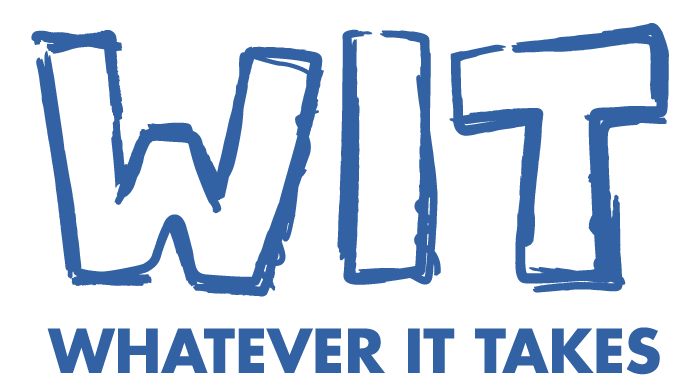By: Harish, WIT teen entrepreneur
Highlights:
- The creator economy is a rapidly growing system that democratizes education whilst also making learning more efficient.
- Due to online learning in the pandemic, educators are more adept at teaching in the digital age; the next stage for educators is to consider reinventing themselves and their identities to include being a creator as a vital part of their role.
- This blog explores how educators should build their brands and leverage platforms that enable them to maximize the impact of their knowledge.

The creator economy is a $100 billion economy involving independent creators that grow and monetize their work through software tools, such as YouTube, Instagram, TikTok, Twitch, Spotify, Substack, Patreon, and more. Since the barrier of entry to create and distribute content is extremely low, the distribution and accessibility of ideas and skills have grown exponentially. In terms of monetization, creators use a variety of revenue models from ad revenue, brand deals, and affiliate links to courses, paid newsletters, and creator-led brands. This economic system, built by 50 million content creators, community builders, bloggers, influencers, artists, and writers, is one of the fastest-growing segments in business with no signs of slowing down.
The Creator Economy & Education
One of the industries most affected by the rise of the creator economy is the education sector. With tuition rates rising constantly and quality education becoming more accessible through MOOCs (massive open online courses) and other free sources online. Due to this availability of information and resources, higher education enrollment, both online and in-person universities, has been on a decline since 2012. Alongside the declining trend of higher education, the creator economy continues to grow and establish itself as a powerful source of widespread education. This is due to the many benefits that digital content provides, such as lower costs, greater accessibility, greater flexibility, up-to-date content, and more efficient upskilling (continuous learning, used to gain and improve specific skills). As a result, content creators are emerging as the teachers and instructors of the next generation, educating people in fields from fitness to business to culinary skills.
The Rise of Live & Cohort-Based Learning
Although the creator economy has allowed for education to become more democratized and accessible, it does come with a few downsides that are important to understand. The increase in the quantity of content makes execution and implementation more important than ever. This is evident due to traditional online courses, such as MOOCs, having a completion rate of only 3-5%. Additionally, digital learning can also result in a lack of the ability to learn together alongside peers, which creates a need for community. As a result, we’ve seen the edtech space double down on the creator economy through cohort-based learning, which has dramatically risen in popularity over the last few years. Companies such as Maven, Mighty Networks, and Disco allow creators and experts to turn their knowledge into engaging cohort-based courses that allow students to experience hands-on learning with accountability through the presence of community. Beyond this, leaders in the edtech space are also exploring use cases of virtual reality and augmented reality in online STEM classes to further increase engagement and learning outcomes.
How Educators can Leverage the Creator Economy
With the rise of digital education, through the likes of the creator economy and cohort-based learning, we can potentially see certain portions of traditional education become obsolete. As a result, it’s important for educators to evolve and reinvent their practices.
The COVID-19 pandemic exposed certain holes in traditional education, which has resulted in the online and hybrid education models existing and rising in popularity even after the peak of the pandemic. With teachers across the world being forced to evolve their curriculum and their skills as a part of this trend, educators are now more adept at teaching in the digital age.
In addition to meeting the demands of virtual learning, teachers should also consider reinventing themselves and their identities to include being a creator as a vital part of their role as an educator. For example:
- Graham Weaver, an entrepreneur and six-year lecturer at Stanford’s Graduate School of Business, created a TikTok account to share his knowledge of economics, personal finance, and life lessons. Through leveraging the power of the creator economy through short-form content, Graham increased his reach exponentially to distribute his knowledge and expertise at rates much faster than he could solely through the classroom.
- Brittany Sinitch, a middle school teacher who documents her life as a teacher through vlogs, Q&As, and lesson plans she uses in the classroom. However, Brittany is not alone as many K-12 educators are using the power of social media to create a classroom that goes beyond physical walls.
It is important to understand that education is a dynamic and ever-changing field that requires constant experimentation and iteration. With education only becoming more accessible and democratized, the identity of educators will change as they won’t be limited to their classroom. In the new age, educators will be building their brands and leveraging platforms that allow them to maximize the impact of their knowledge and play the game of distribution.
Sources
- https://www.forbes.com/sites/forbesbusinesscouncil/2022/02/04/how-the-creator-economy-is-disrupting-higher-education/?sh=707f53e251b8
- https://techcrunch.com/2021/09/09/edtech-leans-into-the-creator-economy-with-cohort-based-classes/
- https://linktr.ee/blog/teacher-influencers-on-social-media/

If you have any comments or questions about this post, please email Youth-Nex@virginia.edu. Please visit the Youth-Nex Homepage for up to date information about the work happening at the center.

Author Bio: Hey, I’m Harish 👋. I’m the co-founder & CEO of Guardial and teen entrepreneur at WIT. I’m based in Austin, Texas, and love exploring social entrepreneurship, the creator economy, and marketing/branding. Feel free to reach out @harishkolli_, would love to chat!
